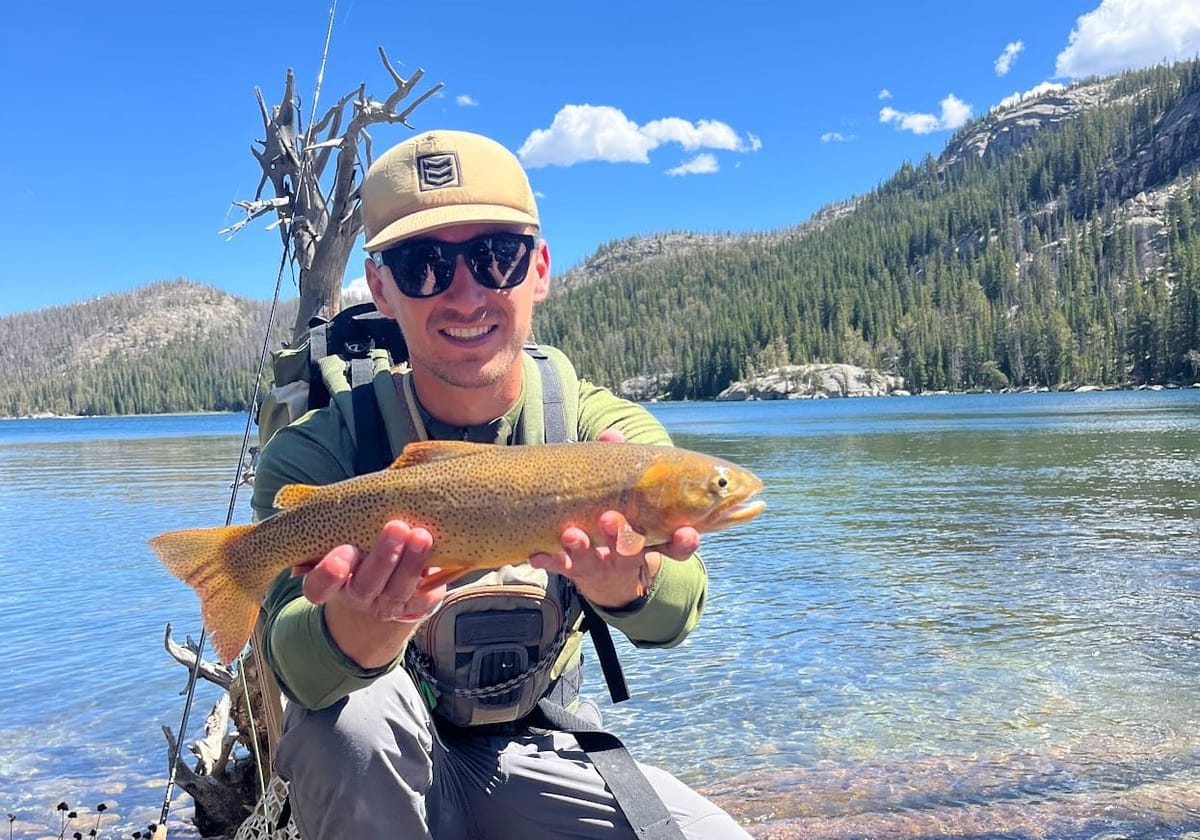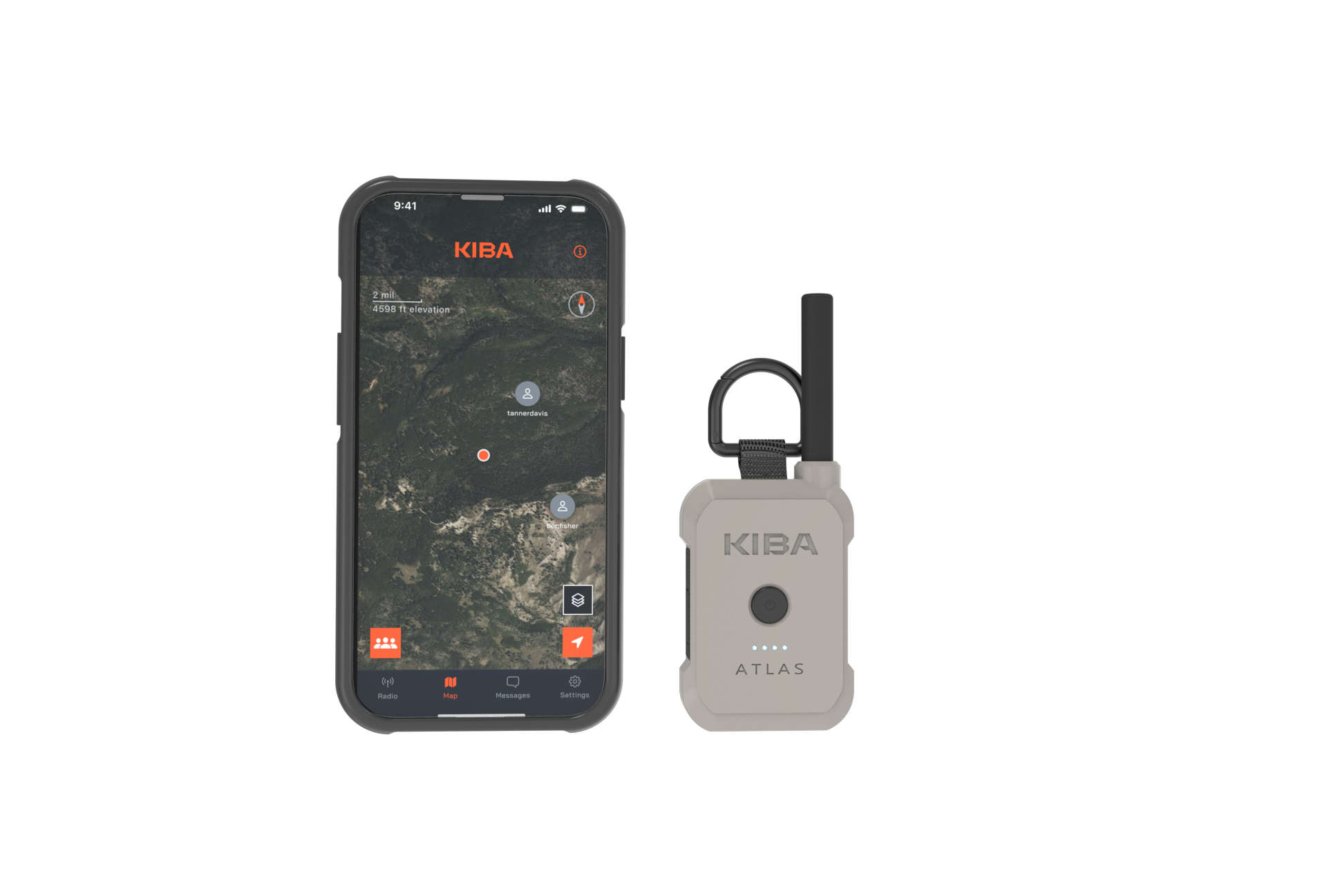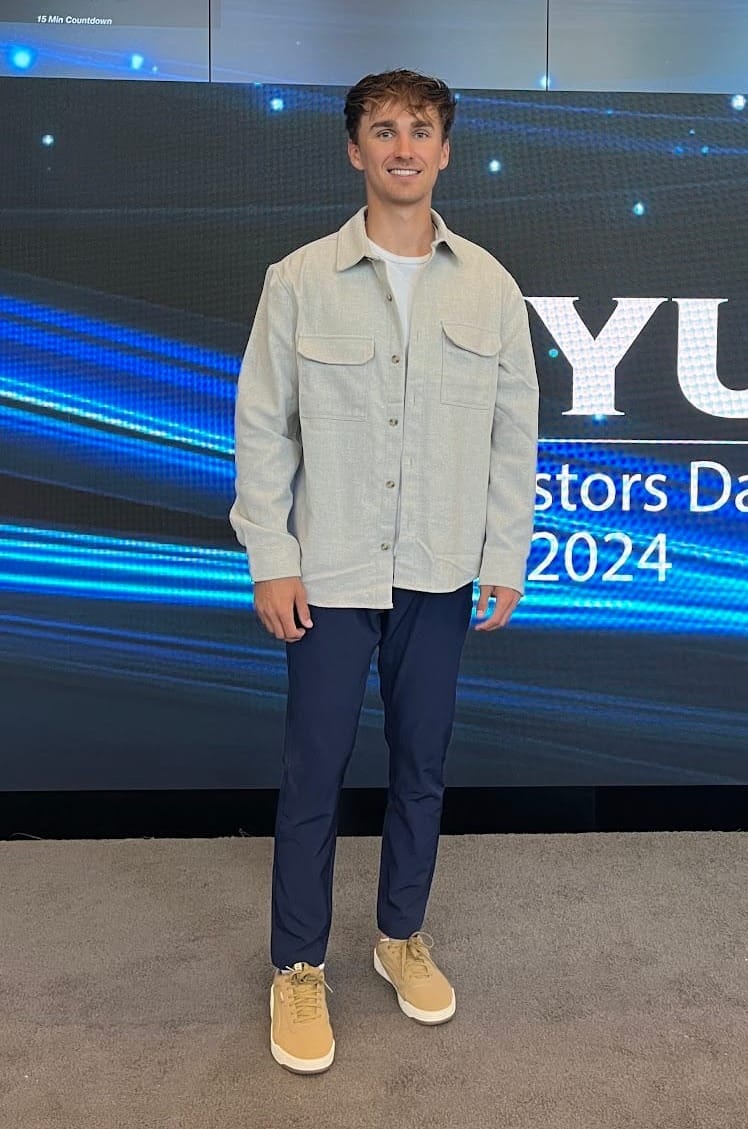

A Vision Born in the Wild
An avid outdoorsman from South Jordan, Utah, BYU Student Tanner Davis founded Kiba Outdoors with a simple yet profound goal: to enhance outdoor experiences by bridging the gap between nature and technology. Davis and his startup, Kiba, are part of BYU's Sandbox cohort of 2024. Sandbox is a full-year, for-credit capstone program for BYU students interested in entrepreneurship. It offers participating students a comprehensive, hands-on experience where they form teams and create and launch their own tech companies. Founded by Chris Crittenden in 2020, Sandbox started at BYU. BYU runs its own instance of the program. Crittenden and his team have since expanded Sandbox to other higher ed institutions in Utah: UVU, USU and UtahTech.
Davis pitched Kiba at BYU's Investor's Day on October, 4, 2024. Inspired by the limitations of traditional outdoor communication tools, Davis is seeking with Kiba to create a solution allowing individuals to stay connected, share locations, and send messages seamlessly, even in the most remote areas.

Problem-Solution Fit: A Perfect Match
We sat down with Davis to find out why he started Kiba. “I grew up in Utah. I’ve been a huge outdoorsman my whole life. I grew up hunting, fishing, backpacking with family and friends over the years. As I’ve been out in the wild, in the mountains, just always dealt with inferior technology,” explained Davis.
The outdoor community has long grappled with the challenges of staying connected in areas with limited or no cellular service. Walkie-talkies, while functional, often lack the advanced features and reliability that modern adventurers demand as well as being expensive. Kiba Outdoors addresses this issue by offering a solution that combines the best of both worlds: the convenience of smartphones with the durability and functionality of specialized outdoor gear, and all this for a lower price.
The Product: A Game-Changer for Outdoor Enthusiasts
“So I've always wondered, 'why can’t I just use my phone to communicate and share my location with my group members?'” said Davis. Kiba Outdoors' flagship product, the Kiba Atlas, is a compact, rugged device that pairs with a smartphone app to enable seamless communication and navigation. By leveraging advanced wireless technology, the Atlas allows users to:
- Send and receive messages: Share updates, coordinate plans, and stay in touch with group members.
- Voice Communication: Use your smartphone as your walkie-talkie to communicate real-time with other Atlas users as well as those with traditional walkie-talkies.
- Share locations: Track the real-time location of others in your group, ensuring safety and peace of mind.
- Navigate offline maps: Access detailed, downloadable maps to explore remote areas without relying on cellular service.
- Create waypoints: Mark important locations and share them with others.

Unique Selling Proposition
Kiba Outdoors differentiates itself from competitors by offering a user-friendly, affordable, and comprehensive solution. Unlike traditional walkie-talkies or complex satellite communication devices, Kiba's technology leverages the familiar interface of smartphones, making it accessible to a wide range of outdoor enthusiasts. Davis shares “You just have your phone, and this lightweight small device”
Kiba Outdoors targets a diverse range of outdoor enthusiasts, including hikers, backpackers, campers, hunters, and climbers. Whether you're embarking on a solo adventure or exploring with a group, Kiba's products are designed to enhance your experience and possibly your next Lake Powell trip.

One of the primary challenges faced by Kiba Outdoors is the complex process of developing and manufacturing hardware. "Hardware is hard," Davis acknowledges. The company must navigate the complexities of hardware design, testing, and production to ensure a reliable and high-quality product. Additionally, securing funding and building a skilled team are essential for the company's growth and success.
To bring his vision to life, Davis has assembled a talented team of experts. Key team members include Adam Meadows, a fellow outdoor enthusiast and BYU student, and Seth Anderson, an experienced industrial designer with a passion for the outdoors. Additionally, Davis has benefited from the mentorship of Steve Ellis, a seasoned entrepreneur with a deep understanding of wireless communication and hardware development.
The Entrepreneur's Vision

Davis envisions Kiba Outdoors as a leading innovator in outdoor technology. "I want to be the next Garmin, the next leader in outdoor communication," he states. The company's long-term goal is to expand its product offerings and explore new frontiers in outdoor technology, such as AI-powered features and advanced mapping capabilities.
Funding and Future Plans
Kiba Outdoors has received grants through BYU Sandbox and is actively seeking additional investment to fuel its growth. The company plans to launch its products early next year and is committed to delivering a seamless and reliable outdoor communication experience.
By addressing the limitations of traditional outdoor communication tools, Kiba Outdoors is poised to revolutionize the way we connect with nature and with each other.


